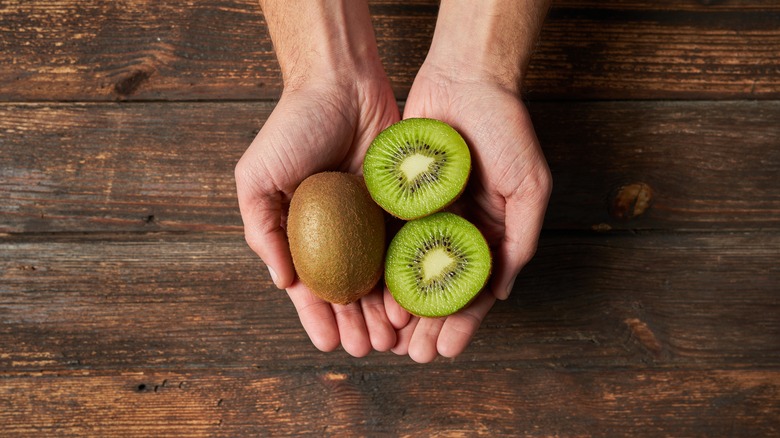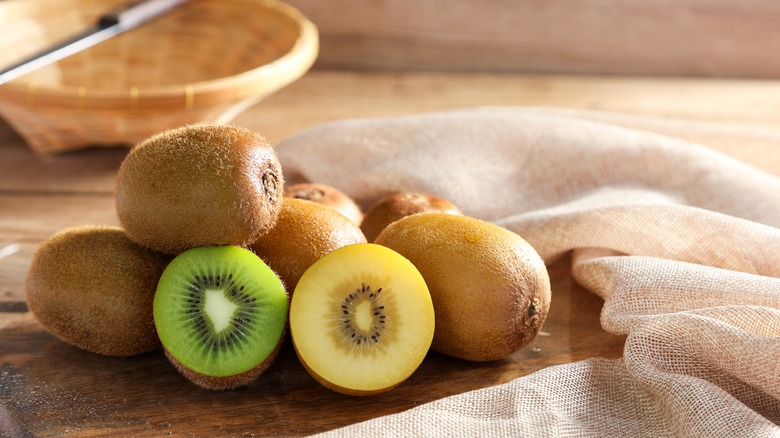Should You Be Eating Kiwi Skin?
The kiwifruit, also known as kiwi, is a popular sweet and sour fruit many enjoy around the world. These tasty treats come in several varieties according to Brittanica; the most popular are golden kiwis and green kiwis. Golden kiwis have smoother skins and a sunny amber flesh, while green kiwis are fuzzy and hairy with bright jade insides. They're similar to the size of a lime and each have tiny black seeds. Whether you're team golden kiwi or more fond of the green kiwifruit, it can be perplexing to decide what to do with the skin. The fuzzy texture may have you wondering, should you eat the kiwi skin or toss it?
Similar to other fruits and vegetables, there seems to be a bit of controversy when it comes to eating the skin. Sweet potatoes, eggplants, cucumbers, oranges (when zested), and even mangoes fall on the list of skins that are safe to eat, according to WebMD. But how do kiwi skins stack up?
Kiwis contain a considerable amount of nutrients and health benefits. According to Medical News Today, they're high in vitamin C, antioxidants, and have anti-inflammatory properties. They also improve digestion, bolster up immunity, reduce blood pressure, ease constipation, and support cholesterol levels, points out Healthline. While these health benefits apply to the kiwi flesh, Healthline explains these benefits may also apply to the skin.
The health benefits of eating kiwi skins
In other words, the entire kiwifruit is safe and healthy to eat — including the fuzzy exterior, explains Tasting Table. And, it turns out that kiwi skins may have even more nutrients than their fleshy insides. According to a 2016 study, the skin of kiwis have high concentrations of fiber, antioxidants, and bioactive compounds. In particular, these peels are high in vitamin E, explains an article in the journal Food Chemistry. WebMD says the skins have vitamin C as well. Each of these vitamins prevent oxidative stress and fight free radicals, per Healthline.
In addition, eating the peel will also increase your folate and dietary fiber intake (per Healthline). Folate is important for supporting cell growth and is a common vitamin recommended for expecting mothers. Fiber, on the other hand, is needed to keep you regular and for supporting your gut health. While the interior of the kiwi offers similar benefits, saving the peel ups the ante. A review in the European Journal of Nutrition shares that dietary fiber can increase by 50% when you consume the skin too. In addition, vitamin E consumption rises by 34% and folate by 32%.
So, if you're considering eating an unpeeled kiwi, make sure to rinse off the skin first. And if you're still contemplating, consider trying a hairless golden kiwi, then work your way up to a fuzzy green one. However if you have kiwi allergies or a sensitive mouth, Healthline recommends avoiding kiwis altogether.


